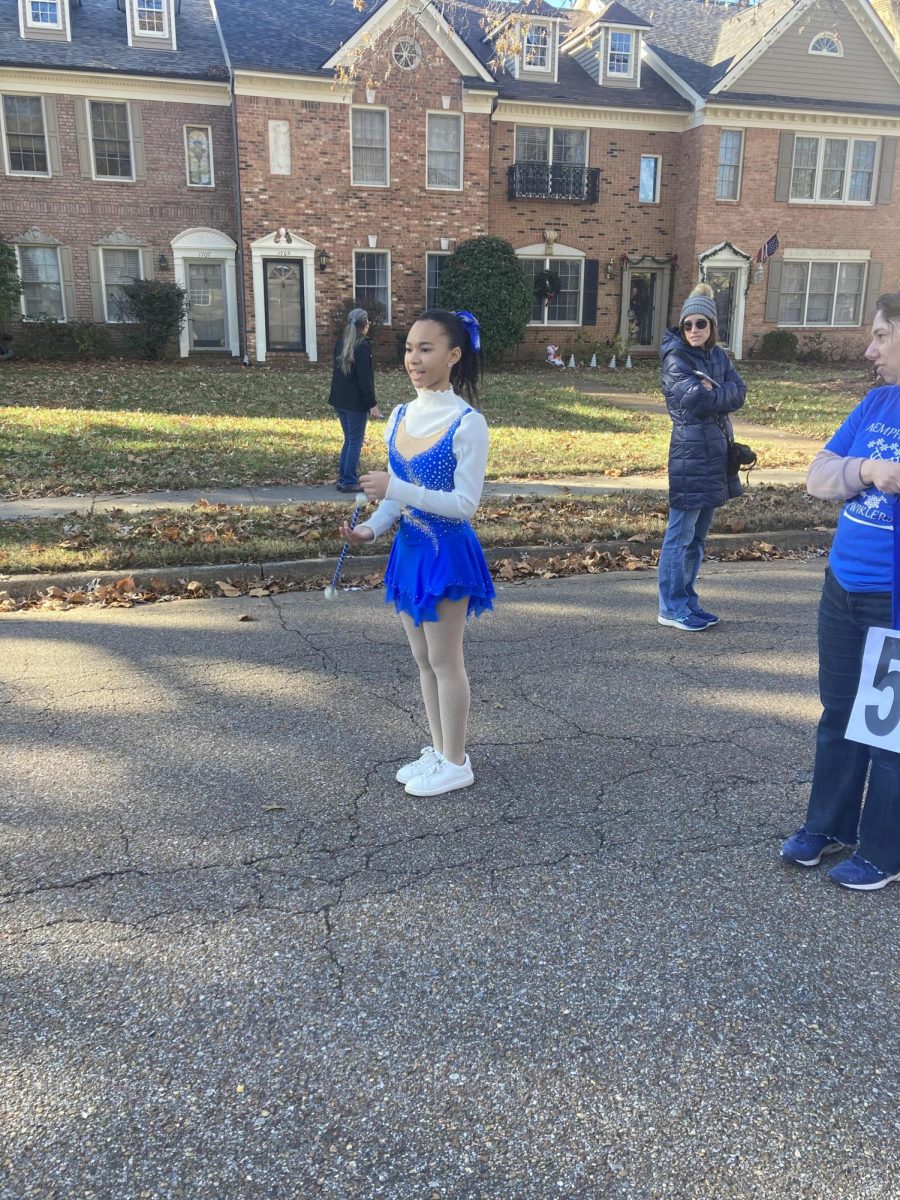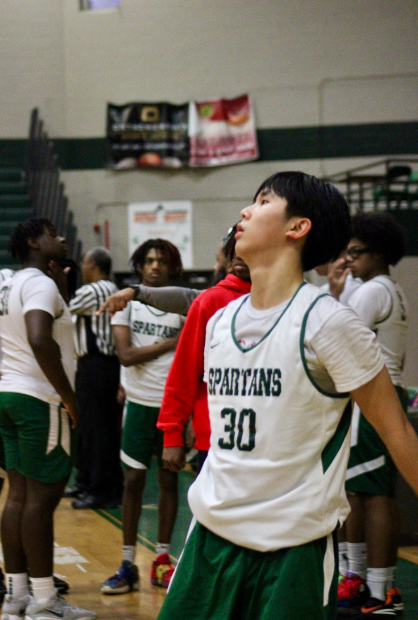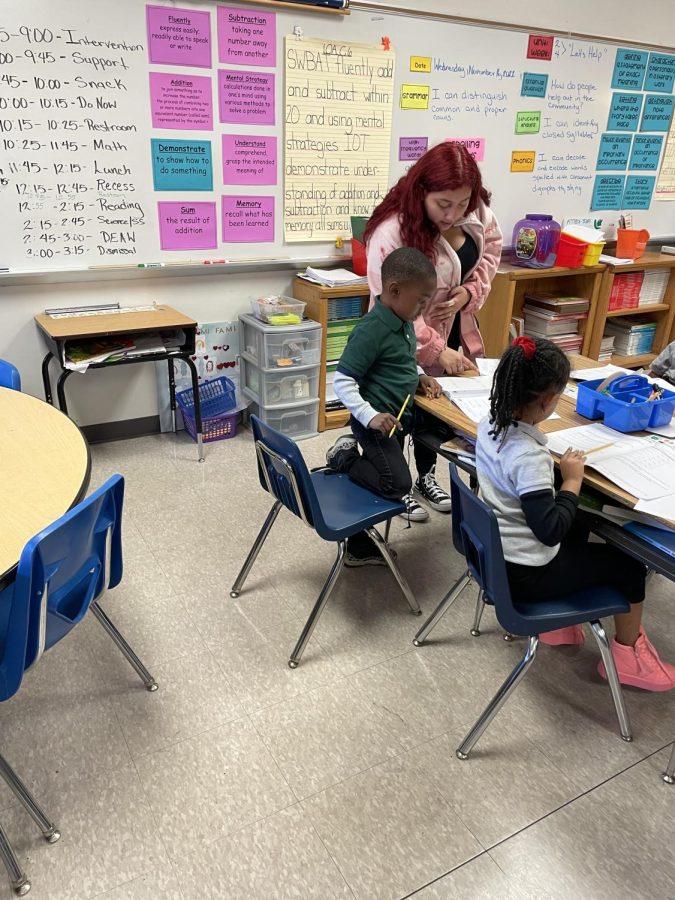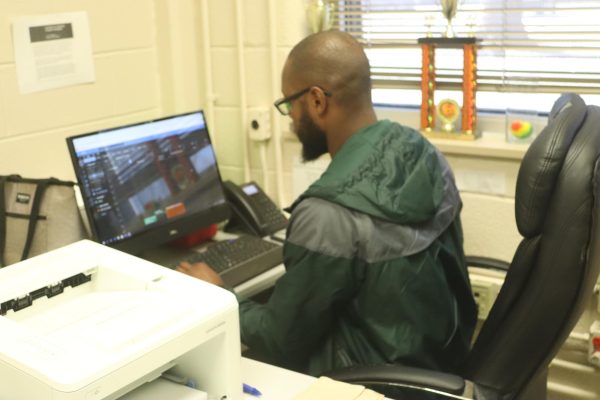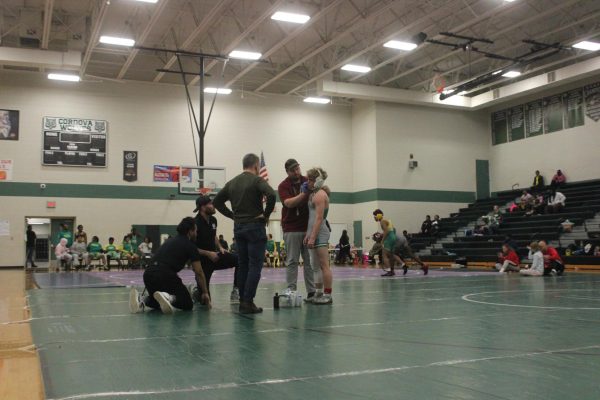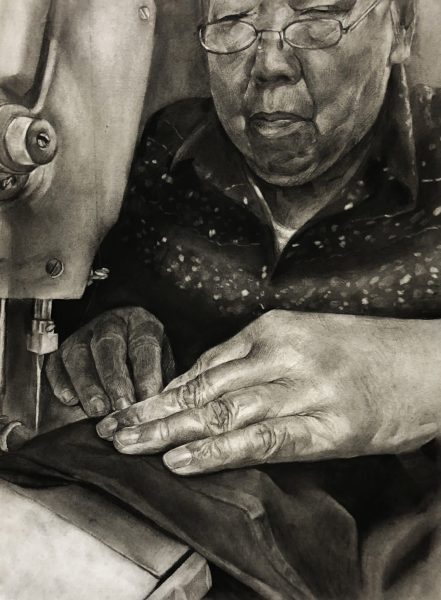The truth about teacher salaries
LATITA HARDEN//USED WITH PERMISSION
Lilly Rodriguez (9) works with White Station Elementary students in small groups. She has taken courses on how to better improve her teaching skills before entering the profession.
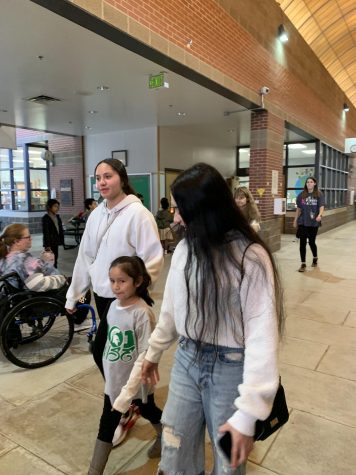
(LATITA HARDEN//USED WITH PERMISSION)
With over 1,200 teacher vacancies in Tennessee during the 2020-2021 school year – 36,500 across the country, it is no surprise that teachers are leaving their profession – possibly for good. Teachers are the backbone of our society, educating the next generation of leaders. Surely they must be well compensated, right?
A teacher’s salary in the Memphis-Shelby County school district is paid in a biweekly system and is determined by the teacher’s highest level of education and experience. According to the school district’s website, incoming teachers with no prior teaching experience and a bachelor’s degree earn $45,965 as a ten-month teacher. However, according to the U.S. Bureau of Labor Statistics (BLS), the national median pay for high school teachers in 2021 is $61,820 per year. Nevertheless, some believe that the money they make is not up to par for the amount of work and time teachers spend outside office hours.
“Being a teacher [means] you definitely have to wear many hats, but if you are going in it for the money [then teaching] is not the job for you,” Latita Harden, the teacher for the Teaching as a Profession course, said. “[A] lot goes in for the pay you get … most of the teachers that I know have a second income coming in from somewhere [to supplement their income].”
Not only is Harden the teacher for the Teaching as a Profession course but she is also the district volleyball team’s referee, as well as the basketball cheerleading and majorette sponsor for White Station.
Being a teacher is unlike any other job; it involves working with young people and working a couple of hours outside of class, like grading or planning during the weekend, which interferes with teachers’ personal lives.
“Our job does not stop at 2:15 [p.m.],” Daniel Zich, the English II teacher, said. “Maybe I only work nine hours during a weekday but sometimes on a weekend, I will work another four or five hours … grading stuff or planning. So it is not just a nine-hour-a-day week … [teachers] also have to come here for parent-teacher conferences … open houses. We do not have a set schedule … I wish sometimes I could have a job where I could [clock out at] 2:15 and I don’t have to think about my job anymore except for what I have to do today.”
Due to the highly dynamic nature of education, teachers have to figure out what works best in their classroom. Learning and understanding the latest ways to keep the class engaging and students’ attention. The transition back to in-person learning has encouraged school districts to keep some aspects of virtual learning. However, this new use of technology is also creating a significant barrier between students and teachers.
“I think technology is probably my biggest hurdle,” Harden said. “You definitely need to know a lot about technology so you can keep up with the students. You definitely want your class to be engaging so you don’t want to do anything that is outdated or old. [The students] are going to be more inspired to engage in the lesson if it is something they already know how to do or something that they think is cool … staying on top of your technology game is very important and that is one of my struggles.”
Teachers are not only expected to deal with students, spend time outside of office hours and keep their classrooms in order but are also expected to follow the district’s lesson plan.
“I think [the district] knows about everything [teachers] are doing,” Zich said. “[The district] knows [that] we have to work at home … They know we can’t grade everything in school … If we are having to grade papers and we are having to come to meetings, we are sacrificing time that we could spend with family. I know I have.”
Although there is a predicted 5% growth from 2021 to 2031 for the high school teaching profession, according to BLS, they also note that “the average growth rate for all occupations is 5 percent.” So with teachers’ stagnant pay, the answer might be better pay and better incentives to have teachers stay and for more teachers to join the profession.
“[Teachers] do not get paid enough and they do not get treated well [so I do not think that teaching is future-proof],” Alexander Boyd (10), an aspiring teacher, said. “For one thing, I hope that by the time I become a teacher, they will get paid more.”
Your donation will support the student journalists of White Station High School. Your contribution will allow us to purchase equipment and cover our annual website hosting costs.








